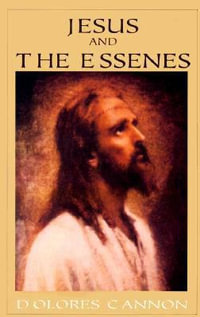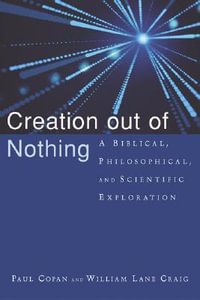Who was Jesus of Nazareth? Many admire his spiritual teachings; some go further and claim him as the messiah, while a few deny he ever existed at all. But everyone has an opinion about this obscure preacher who lived his brief life in one of the less significant regions of the Roman Empire; and who, in being crucified, died the traditional death for criminals and trouble-makers.
Jesus lived in turbulent times. Under Roman rule, Judea was a hotbed of nationalist, political and religious interests, all vying for power. Jesus was caught in the middle of these, allied to none and ultimately reviled by all. 'My kingdom is not of this world,' he said, though he agreed taxes should be paid to the Romans. 'Give to Caesar what is Caesar's and to God what is God's.'
He taught simply but challengingly, advocating love for our enemies, a spirit of forgiveness and respect for children. What else was new about Jesus? He spoke of a new way of being which he called 'the kingdom of God.' This was not a place but an inner state, and the doorway to this kingdom was trust in a heavenly father. As he would often say: 'Have anxiety about nothing.' It was a trust Jesus himself required in a life full of conflict; not least with his family who largely disowned him. 'Who is my mother? Who are my brothers?' he famously asked when they attempted to rein him in.
In 'Conversations with Jesus of Nazareth', the questions are imagined, but the words of Jesus are not; they are authentically his, taken from the various records of his life in the gospels of Matthew, Mark, Luke, John and Thomas. Jesus himself never wrote anything down, but in a culture of oral transmission, his words, deeds and stories were well-remembered, and it's not hard to see why.
'It's the shape of our heart which Jesus is interested in,' says Simon Parke. 'This is what comes across when talking with him. It's not what we do that matters, but who we are, and that's why he upset the religious people of his day: he didn't give them anything to hide behind. He's not always easy company, I agree, but his life and his words - they have the undoubted ring of truth.'
Industry Reviews
"Since Jesus was born long before the age of the in-depth interview, the brief conversations recorded in the Gospels often leave you wanting more. But now Jesus has a new conversation partner as Simon Parke sits with the man from Nazareth to talk, question, interrupt, joke, answer back and - above all - listen in frequent surprise to the words of Jesus. It's not too strong to say that the result is a revelation, because the drama of the conversation opens up the life and teaching of Jesus in a fresh and unexpected way. Simon Parke's brilliant matching of engaging dialogue with verses from the Gospels has created a new kind of Gospel for readers today." Simon Jenkins, editor of shipoffools.com THE NEW YORKER August 30th 2010 SIMON PARKE SPEAKS WITH THE DEAD Book trailers-the low-budget previews modelled on those used by the film industry-have quickly grown tiresome. They're never very interesting, often overly impressionistic and pretentious, and rarely rise above the level of those silly historical reA"nactments you see on cable. They might get better over time, or die out; either is preferable to their current state. An exception, though, are the finely wrought previews for Simon Parke's Conversations with - A" biographies, published by White Crow Books. In this series, Parke bypasses the more quotidian aspects of historical biography by conducting interviewsA" with his subjects-Jesus, Meister Eckhart, Arthur Conan Doyle, Vincent van Gogh, and Leo Tolstoy-with the answers coming from their published writings. The trailers are stagey-with Parke and the actor playing his subject shown in the recording studio while a musical score soars behind their voices-yet the interviews nonetheless feel natural. Much of this feeling owes to the straightforward and unadorned nature of the exchanges, as when Parke asks Vincent van Gogh why he drinks, and the master answers, If the storm gets too loud, I take a glass too much to stun myself.A" The shot cuts to At Eternity's Gate,A" van Gogh's portrait of a man with his head in his hands, but you can imagine the whorls and swirls of the artist's favored darkened skies as well. Here, Parke conducts his interview with Tolstoy in the assured and chatty style of a British talk-show host: http://whitecrowbooks.com/conversations/page/conversations_with_leo_tolstoy This gambit may be viewed as simply a clever gimmick, but there is something compelling about Parke's style, which in a way that is always promised but rarely delivered, does, in fact, bring his subjects to life. Parke's role as the good-natured interlocutor seems to be an essential component of the project, a disposition on display in this cheeky description of his imagined time spent with Tolstoy: He also proved an appalling husband, hated Shakespeare, never came to terms with his sexual appetite and yet had a profound influence on the non-violence of the young Gandhi. My time at Yasnaya Polyana, Tolstoy's country estate, was never dull; and sometimes, surprisingly comic. Soon after I left the great man, at the age of 82, he ran away from home. by Ian Crouch Loose leafs from the New Yorker Books Department.
























